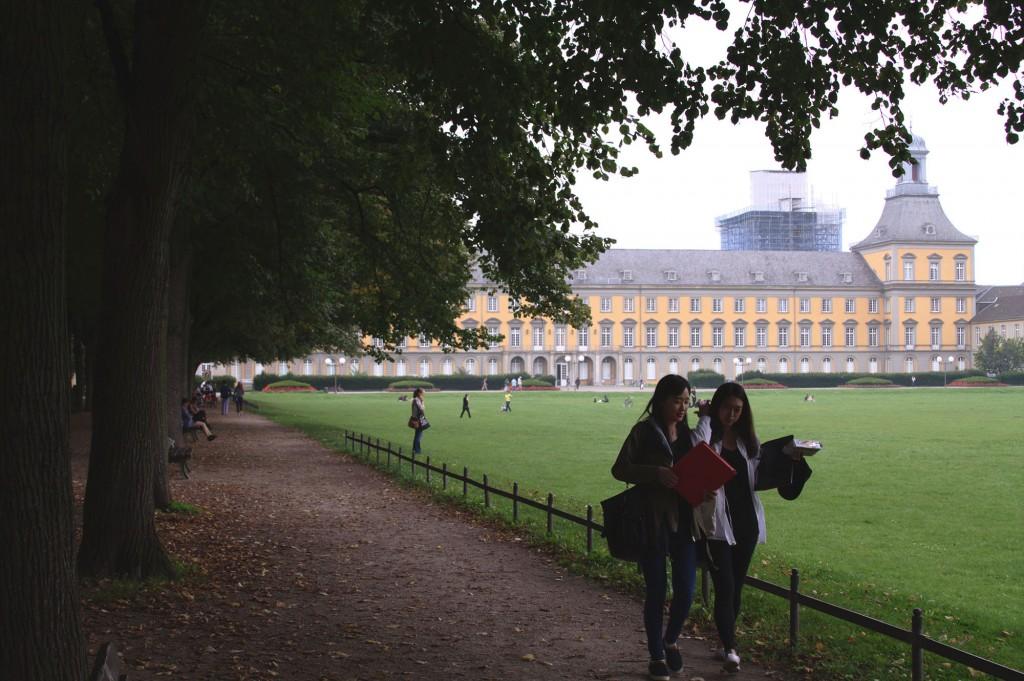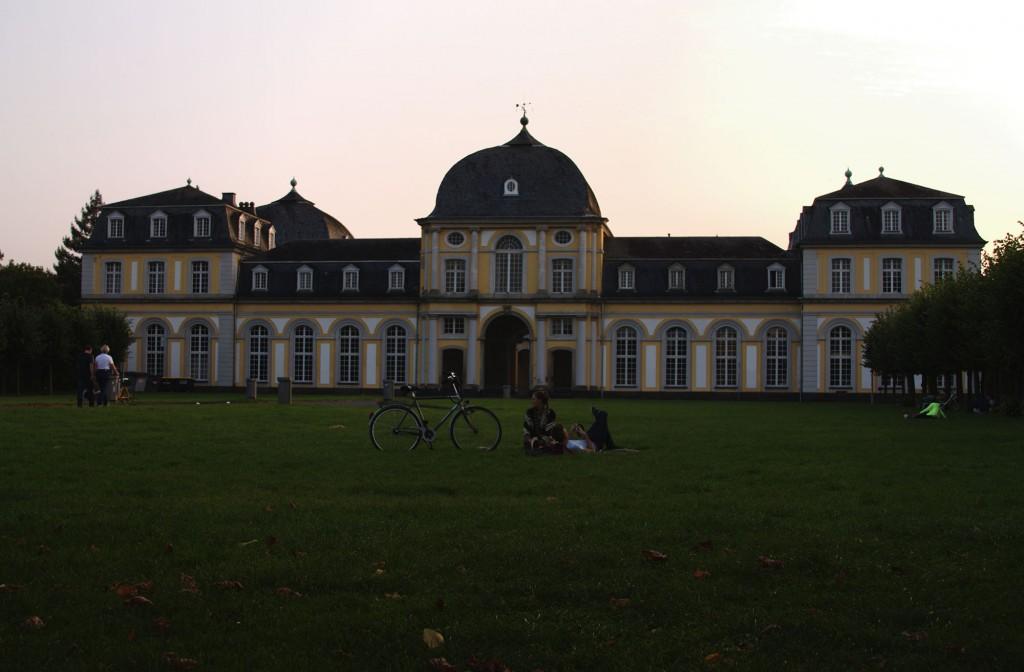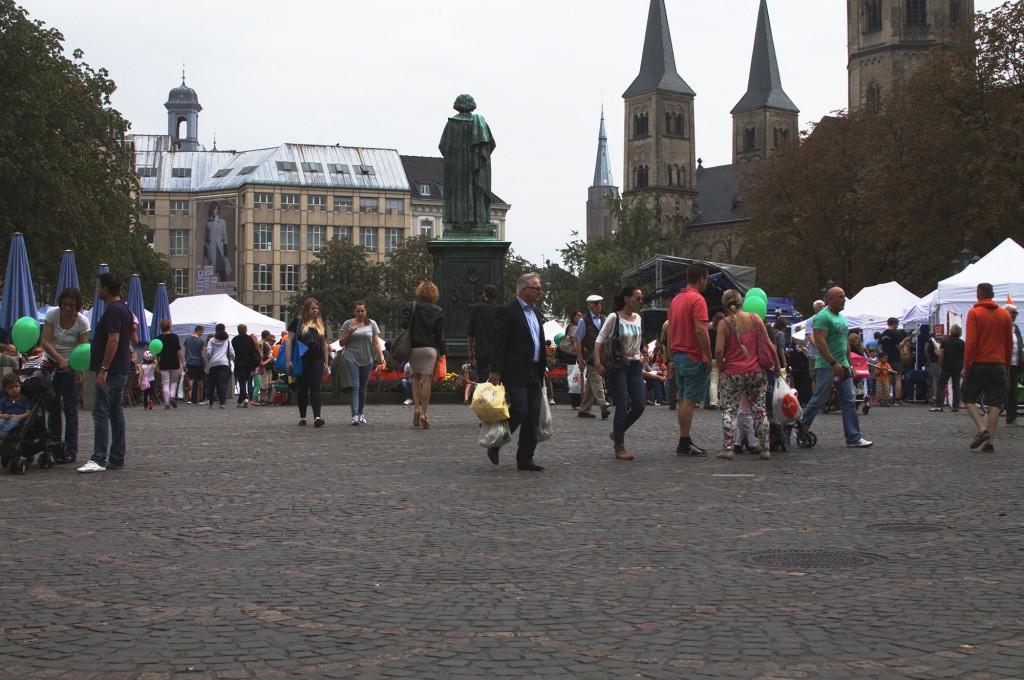
[hr]
[dropcap]I[/dropcap] had to stop in my tracks on the early morning run if not just simply to laugh. What could be a more blatant reminder that I was far from my home in Chicago than the legitimate home on the range, cock-a-doodle-doo of a rooster?
Settling in after my clumsy arrival last week, I laced up my sneakers to hit the brick sidewalks on my new street, Ippendorfer Allee in Bonn, Germany.
This certainly wasn’t like my normal route along Lake Shore Trail. Besides the rooster, the fog absorbed all other sound in the quiet neighborhood. A line of people trickled from the local bakery for a brötchen (bread roll), a Volkswagen whizzed through the roundabout and a passerby stepped off the narrow brick curb to let me by as I puffed out “entschuldigung” (excuse me).
I returned to my “studentwohnheim” (dorm) and fixed a bowl of müsli while greeting one of my floormates, Xueyang, in our two mutual languages: English and German.
Like the other 129 international students at the University of Bonn, I try to speak as much of my broken German as possible. Not only is it good to practice, but the natives also appreciate it. I know because they’ve told me so.

It was just the other night as I mingled through the massive party of students on the hofgarten (quad) sipping a pilzner (German beer) that my new friends told me they were impressed an American tried so hard to use their language.
Apparently we have a bit of a poor reputation in Europe for taking advantage of our globally spoken language.
Between asking for directions, help with buying train tickets, and to repeat the total price for my groceries, those three quarters of German sure came in handy. I’ll have to admit however, that there was no course to prepare me for the day I arrived here.
It was a miracle that I found my way from the airport in Düsseldorf to the university international office.
It took me almost two hours to make the one-hour journey by train, and it was terrifying. Chicagoans know public transit like the back of their hand, but I didn’t realize how disorienting it is to tackle an entirely new transit system, in a foreign country nonetheless.
I couldn’t appreciate the landscape whizzing beyond the windows because I was stuttering at the train conductor—who was trying to explain how I had bought the wrong ticket and cost me an extra 15 Euro ($19.43).
My first official word of advice for those expecting to study abroad is this: Plan on making a lot of mistakes those first couple of days. More importantly, accept that it will cost you money.
Between a German SIM-card for my phone (which didn’t work because Verizon couldn’t unlock my phone from overseas), a temporary replacement phone, a new power converter and hair dryer (because my American hair dryer used so much power it blew out my converter), and all other expenses like train tickets, groceries and eating out, I spent about $500.
The number makes me wince, too, but I promise most of the expenses were one-time buys.
Since then I’ve opened an Excel spreadsheet to keep track of my weekly expenses. For now my limit is 10 Euros per day, which gives me 30 Euro per week of extra spending money for groceries, eating out more than once on the weekends, and other miscellaneous things.

Besides worrying about money, I am remarkably more relaxed now than I was when I arrived a week ago.
In retrospect, the bus system isn’t all that confusing, and I’m finding my way around the winding brick streets in the center of the city. Most importantly though, I have plenty of friends here to help ease the shock of navigating these first weeks in a foreign country.
In a sense it felt like fall quarter of freshman year all over again. The best part of the experience in this first week has been making friends with people my age from around the world. Stumbling through the formalities of study abroad is much easier with a group of friends, and they’re handy when exploring the city during the day and especially at night. Bonding with my friends has taken the edge off the homesickness and given me comfort when I need it most.
Bonn Voyage will run as a bi-weekly column in The DePaulia. For more on Megan’s time in Bonn, visit her blog megandeppen.org.

